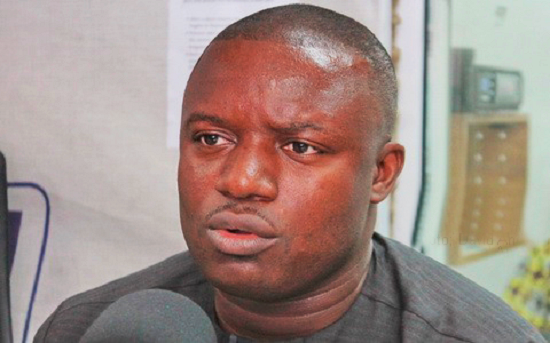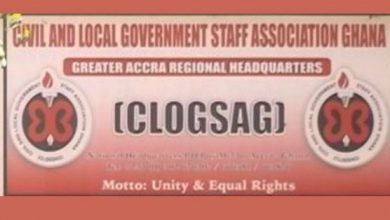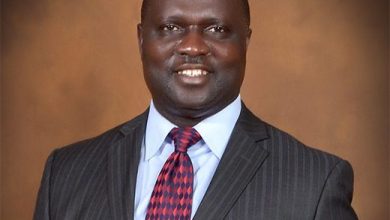News
Increase in energy tax not result of power agreements — Minority

The Minority in Parliament has debunked claims by the Minister of Finance, Mr Ken Ofori-Atta, that the increase in the Energy Sector Levy is as a result of the power purchase agreements (PPAs) that had been signed by the erstwhile National Democratic Congress Party (NDC) government.
They said the problem being faced in the energy sector was self inflicted and the government must be held accountable.
But the Majority side has insisted that the PPAs, which were poorly negotiated by the NDC government, compelled the government to pay for fuel not utilised.
Therefore, they said, the proposed increase in the Energy Sector Levy was to raise money to clear the mess left behind by the past government.
The Minority side first advanced its position at a press conference yesterday and continued it during the debate of the mid-year budget presented by the Minister of Finance, Mr Ken Ofori-Atta, in Parliament last Monday.
Minority’s take on energy
Advancing the position of the Minority side on the energy sector, the NDC MP for Yapei/Kusawgu and former Deputy Minister of Power, Mr John Abdulai Jinapor, said the Minister of Finance sought to justify why the government increased the tariffs and tried to put everything on the power purchase agreements (PPAs) that had been signed.
He said the 50 per cent increment in the communication service tax had nothing to do with power, energy or electricity.
“If you take the Energy Sector Levies Act, Act 899, the components of the taxes are four. Price Stabilisation and Recovery Levy, the Energy Debt Recovery Levy (divided into two) and the Road Fund Levy.
“The Road Fund Levy had nothing to do with the power sector even though it finds expression in the Energy Sector Levies Act. Any monies accruing to the GETFund Levy is also supposed to go to Road Fund. If you take the Price Stabilisation and Recovery Levy, which is also part of the Energy Sector Levy Act, that money is supposed to be used to subsidise premix fuel.
“The only component which has relation with the power sector is the Energy Sector Recovery Levy, and even that was broken into two”, he said.
Mr Jinapor explained that the Energy Debt Recovery Account was supposed to pay for Tema Oil Refinery (TOR) debt and so it had nothing to do with PPAs.
He said it was only money from the Power Generation and Infrastructure Sub Account that was used to pay for the TOR legacy debt.
“And so for the minister to increase five taxes and claim that it was because of PPAs that he was increasing taxes, is false, inaccurate and grossly misleading”, he said.
According to Mr Jinapor, in the 2018 account of the Energy Sector Recovery Account, the Road Fund got GH¢1.3 billion, and indicated that out of that amount, only GH¢680 million was released to the Road Fund.
He said the minister used about 50 per cent of the amount for non road-related activities.
“If you take the Price Stabilisation and Recovery Levy in the 2017 account, the minister borrowed GH¢150 million from that money and even in the 2018 account, the Price Stabilisation Levy was in excess”, he said, therefore, that there was no justification for any increases.
Mr Jinapor challenged the Minister of Finance to publish the list of the 2,300 megawatts (MW) of thermal capacity that he claimed were in excess and in the form of pay or take basis.
He recalled that in 2017, the former Minister of Energy, Mr Boakye Agyarko, told Parliament that he had terminated 11 PPAs and made a saving of GH¢7 billion.
However, he said, just last Monday, the minister claimed that only two PPAs had been terminated and made a saving of about GH¢1.5 billion, and wondered whom to trust between the two of them.
Majority’s rebuttal
Leading the debate for the Majority side, the Chairman of the Finance Committee of Parliament, Dr Mark Assibey-Yeboah, said the take or pay PPAs had accumulated debt for the country.
He said the government was taking the right decision to wean the country off that financial obligation.
Dr Assibey-Yeboah said the erstwhile NDC government had left the economy in tatters, saying that “Anytime they (the NDC) are in government, the macro economy is thrown overboard.”
He said the government had restored macroeconomic stability as every single macro indicator had improved.
“Purchasing power has improved, interest rate is down by 13, current accounts seeing surpluses and the currency stabilising,” he said.
Dr Assibey-Yeboah said the banking sector had been revamped with 23 healthy banks instead of the overblown banks.
He said the banks had about GH¢102 billion total assets, GH¢75.3 billion total deposits, while 3,000 jobs had been preserved.
In his contribution, the New Patriotic Party (NPP) MP for Ofoase/Ayirebi and Minister of Information, Mr Kojo Opoong Nkrumah, said the Energy Sector Levy had increased because of the take or pay PPAs.
He refuted the claim that the government had borrowed GHc80 billion, and stated that the NDC government borrowed more in the name of smart borrowing.
For instance, the NDC government’s borrowing amounted to 73 per cent of GDP while the current government’s borrowing was in the region of 54 per cent of GDP.
Taking his turn, a Deputy Minister of Energy, Mr Mohammed Amin Anta, said the PPAs had saddled the government with debts.
He said over the next three years, the government could incur additional GH¢3 billion as a result of the deal.
Source: Graphic.com.gh



